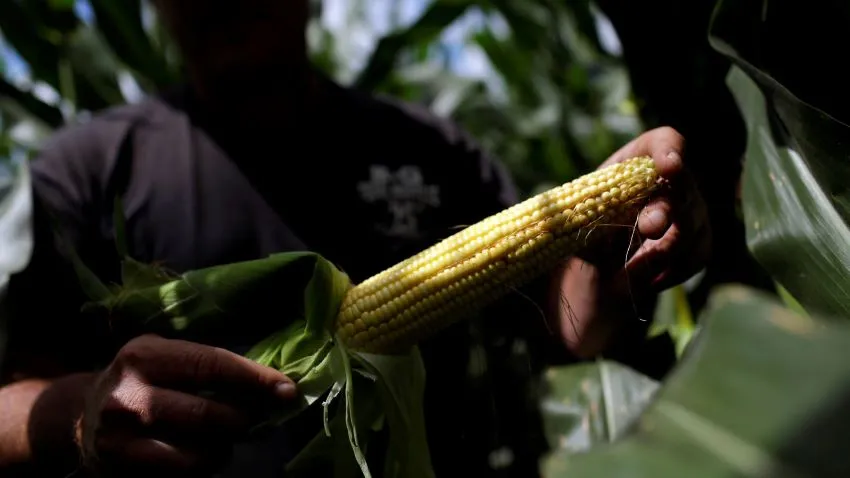
American farmers who went bankrupt reached a high not seen in eight years because of massive floods and exports depleted by the U.S.-China trade war.
There were 580 Chapter 12 bankruptcy filings during the full year ended September, according to data from the federal court system. The number is up 24% from the same period a year earlier, which had a total of 468 filings.
The hardest hit were Midwestern states. Wisconsin had the highest number of bankruptcies at 48, while Nebraska and Kansas came in next at 37 apiece, followed by Minnesota with 31. Floodwaters inundated much of the region this spring, leaving stretches of land infertile.
James McCune owns 2,400 hectares of farmland in Illinois, but was only able to seed in 325 hectares. He called this "the worst year" for farming.
Although the Trump administration is offering subsidies, McCune said he is taking in approximately half the income compared with an average year, and that he has incurred a massive loss.
Farmers have been hit with a double whammy of decreased yields and lower crop prices. Soybeans have slumped in the futures market to less than $10 a bushel. Farm debt is anticipated to hit $416 billion at the end of the year, an all-time high. That has fueled fears that bankruptcies will continue to surge.
The average incomes of corn and soybean farmers has dropped for six consecutive years, according to First Midwest Bancorp., the state's largest agricultural bank. Grain production does not generate the type of substantial earnings that could be secured in the past, said Rebecca King, director of agriculture at First Midwest.
The U.S. trade war with China has also imposed downward pressure on earnings. China used to purchase at least $20 billion worth of U.S. farm products a year, but the volume has shrunk to between $7.5 billion and $7.8 billion this year, said Dale Moore, executive vice president of the American Farm Bureau Federation.
China is expected to purchase $40 billion worth of U.S. farm goods under the limited trade pact reached last week. The farming federation released a statement saying, "this development is welcome news." Beijing, however, has yet to confirm the $40 billion figure, raising questions over whether the threshold will be realized.




















